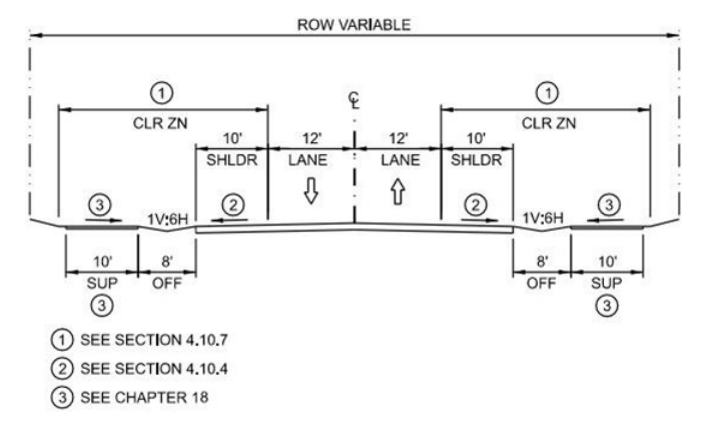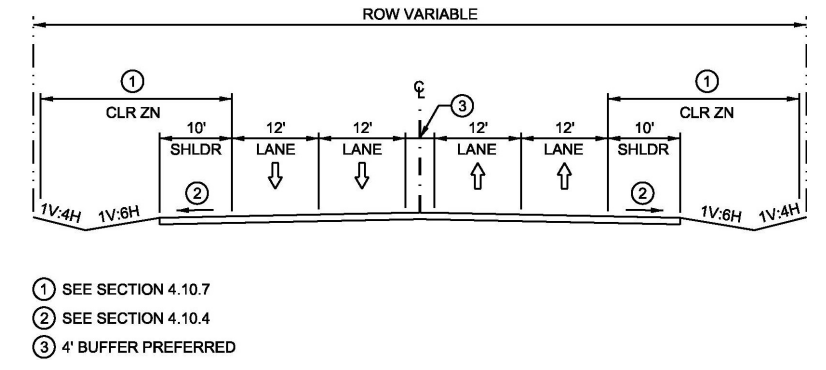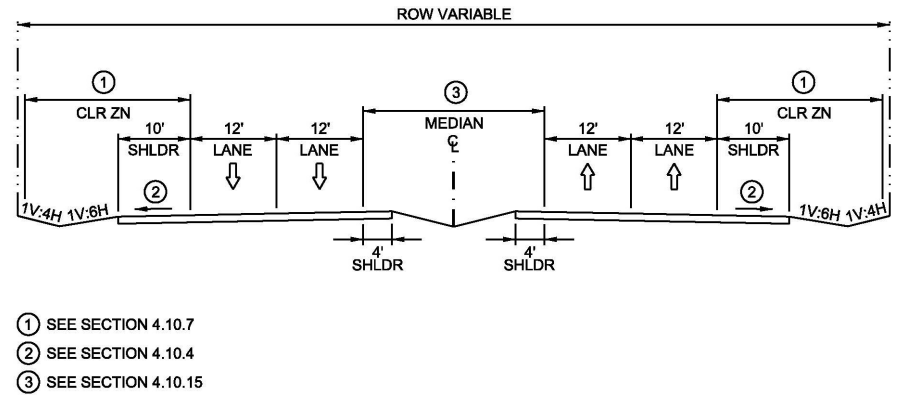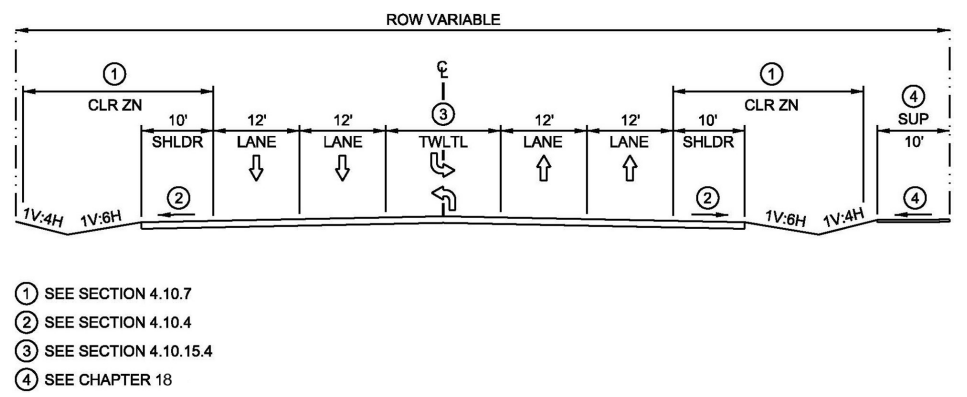6.2 Rural Design Elements
6.2.1 General Characteristics
Two-lane collectors are an important part of the rural highway system in that they provide connectivity between local roads and streets with arterials. They should be designed with the most favorable horizontal alignment, profile, and cross section practical that is consistent with traffic volume and topography.
The basic information needed for the design of rural collectors include:
- Crash History;
- Current and Projected Traffic Volumes;
- Terrain; and
- Horizontal and vertical alignment.
6.2.2 Typical Sections
Rural collector example typical sections are shown in
through
below. The geometric dimensions shown in these sections represent examples of different conditions and may be adjusted in accordance with
.
Selection of the appropriate cross-section is important for optimal safety and operational performance. See
and
in the Arterials Chapter for additional guidelines on selecting cross-sections for rural highways.

Figure 6-1: Rural Typical Section – 2 Lane

Figure 6-2: Rural Typical Section – 2 Lanes with SUP

Figure 6-3: Rural Typical Section – Multilane Undivided w/ Median Buffer

Figure 6-4: Rural Typical Section – Multilane Divided (4 Lanes)

Figure 6-5: Rural Typical Section – Multilane Undivided with TWLTL